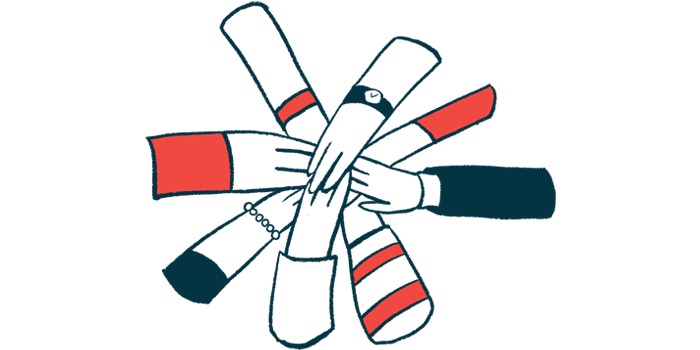After 25 Years, Eurordis Still Works to Keep Rare Patients as Focus
Umbrella alliance advocates for rare disorders like AADC deficiency
Written by |

Since its founding more than 25 years ago, Eurordis has presented and promoted initiatives to ensure that people with rare diseases, such as aromatic l-amino acid decarboxylase (AADC) deficiency, are at the heart of treatment development.
That work continues — and indeed, Eurordis is stepping up its efforts.
The umbrella organization, which advocates for, empowers, and engages people with rare diseases, has launched a number of new efforts in recent years. Among them are initiatives such as new advocacy training, memberships in regulatory agency scientific committees, and efforts to advance medicine repurposing in Europe.
“It may be obvious that the experiences, preferences, and hopes of people living with a rare disease should be central to how new medicines are researched, developed, and used,” Eurordis states in a news release about its efforts to bolster patient participation.
“However, it is only in recent times that the most significant strides have been made in placing patients — and an appreciation for their unmet needs — at the center of a medicine’s lifecycle, from the point of discovery to the points of marketing authorisation and use.”
Advocating for rare patients
Eurordis is an alliance of more than 1,000 rare disease patient organizations from 74 countries. The groups work together to improve the lives of the approximately 300 million people globally that are thought to have a rare disease.
From supporting a project that aims to drive medicine repurposing in Europe, to the establishment of an academy that teaches patients and their loved ones about the power of advocacy, Eurordis seeks to make sure that patients’ voices are heard, particularly when it comes to new medicines.
Such improvement depends heavily on increased patient involvement throughout therapeutic development processes.
According to Eurordis, such engagement is especially important in the rare disease space, because these disorders are often complex and difficult to diagnose. That makes it hard to establish the volume of patients necessary for viable and effective patient engagement.
Moreover, disease populations are relatively small, making it even more challenging to identify patients with the time, resources, and expertise to work with treatment developers and government regulators. Then there is the myriad of socioeconomic factors that often impede patient engagement.
To help offset such obstacles, Eurordis provides patients and families with advocacy training, collaborates with the European Medicines Agency (EMA) to ensure that patients are identified and involved, and supports European Union projects that seek to improve patient engagement processes. The EMA guides and supports treatment developers.
In fact, Eurordis has appointed a patient engagement manager to collaborate with the EMA to identify patient representatives for involvement in protocol assistance procedures.
Through voluntary membership on EMA scientific committees, individuals with rare diseases can represent the needs and expectations of patients throughout the regulatory process. The Therapeutic Action Group, created by Eurordis in 2009, comprises such patient representatives.
“When patient representatives are members of EMA scientific committees, they contribute as equal partners, with the same voting rights as other members,” said Virginie Hivert, Eurordis therapeutic development director. “We now must work on how to improve the way patient data, patient-reported outcomes, and patient preferences are incorporated into regulatory processes.”
To help patients and their families gain the skills and expertise necessary to participate in engagement roles, and to advocate for rare diseases, the organization established the Eurordis Open Academy.
Then there are the European Patient Advocacy Groups, created by Eurordis and the rare disease community to bring the patient voice to the core of European Reference Networks activities, which involve the diagnoses and treatments of rare or low-prevalence complex disorders.
Eurordis also is a partner in the Patients Active in Research and Dialogues for an Improved Generation of Medicines (PARADIGM) project, which promotes patient engagement throughout treatment development.
Another partnership is with the European Union-funded REMEDi4ALL, a new research initiative that seeks to advance medicine repurposing in Europe. Eurordis will help support platform construction of a framework for patient engagement.
“Pooling resources and partnering with all the stakeholders involved in medicines development at the European level is key to achieving meaningful, extensive, and sustainable engagement with rare disease patients,” said Maria Cavaller, Eurordis patient engagement and therapeutic development senior manager.





